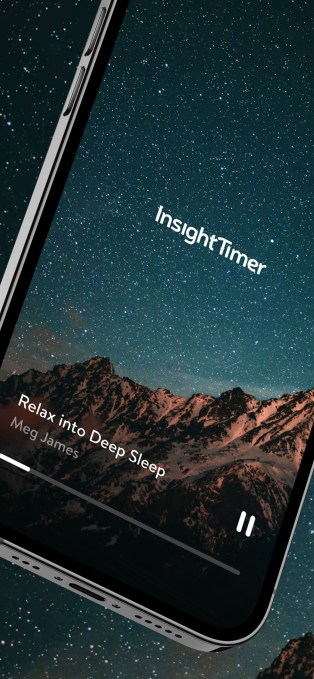The CEO of meditation app Insight Timer, Christopher Plowman, is pissed off. He doesn’t suppose the lecturers who leverage his app’s market to succeed in their college students ought to need to share 30% of their earnings with Apple — its fee on in-app purchases — and for the previous 12 months, Apple had additionally agreed. After Apple loosened its guidelines round in-app donations in 2022, Perception Timer took benefit of the choice to regulate a digital donations function which allowed Perception Timers’ lecturers to gather “suggestions” from their person profiles and through dwell occasions. Apple reviewed the app and accepted its launch on the App Retailer. Now, the tech big has modified its thoughts — it needs to gather a fee from this content material, and Perception Timer had no selection however to conform or have its iOS enterprise shut down, Plowman says.
The difficulty right here is considerably complicated, however highlights the challenges builders have with navigating immediately’s App Retailer and its ever-growing algorithm, which are sometimes open to misinterpretation by each app makers and Apple’s app reviewers alike. As an alternative of pairing a rep to work with a subset of Apple’s developer purchasers — the app makers who assist Apple generate massive profits from its Services division — Apple’s App Overview is commonly a hit-or-miss course of the place one rogue reviewer can reinterpret Apple’s coverage otherwise from others, upsetting a developer’s total enterprise within the course of.
That’s what occurred with Insight Timer, a well-liked meditation app with round 25 million installs and three million month-to-month lively customers. Like many App Retailer companies, Perception Timer generates income by promoting subscriptions. In 2023, it earned round $20 million in subscription income, with a 3rd of that (30%) paid to Apple, per its fee tips.
Nevertheless, the corporate additionally presents a donation function that enables clients to tip their favourite meditation lecturers to thank them for his or her effort and time.
“Our lecturers are very engaged with our group. They spend a number of time answering questions, recording video replies and audio replies and that type of factor,” explains Plowman. When Apple added a brand new rule round donations, the CEO realized he may reap the benefits of the choice to assist complement the lecturers’ earnings with bigger digital suggestions. As a result of Perception Timer doesn’t take a reduce of customers’ donations to favourite lecturers, these donations shouldn’t be topic to Apple’s fee — or so Plowman believed.

Picture Credit: Perception Timer
In part 3.2.1 of Apple’s App Review guidelines, the corporate explains that apps can route round Apple’s in-app buy if the app allows particular person customers to “give a financial present to a different particular person” and “100% of the funds” go to the receiver of the present. Perception Timer capitalized on this selection to permit its customers to tip meditation lecturers, healers, musicians, and others who use its app to show lessons on meditation, managing stress, discovering happiness or non secular enlightenment, and extra. Perception Timer applied the function utilizing Stripe because the cost supplier on the backend, because the rule permits.
Customers can choose to donate funds to the trainer, however they don’t need to. Perception Timer’s principal enterprise is promoting premium subscriptions to its app which supply further options, like offline listening, journaling, and limitless entry to its programs. 50% of this income is shared with the lecturers, in order that they don’t need to depend on donations to fund their work. Throughout the time the commission-free donations function was dwell, Perception Timer’s customers donated roughly $100,000 monthly to the app’s lecturers, Plowman says.
Apple appeared to have blessed this use case, because the tech big went on to approve 47 extra updates to Perception Timer’s app over the course of a 12-month interval. When a query arose, Perception Timer defined that these have been donations — it doesn’t take a reduce of that income — and Apple would approve the app.

Picture Credit: Perception Timer
Late final yr, these approvals stopped. An app reviewer instructed Perception Timer that these donations have been not thought-about financial presents — they have been now “digital content material.” That meant they have been additionally now topic to Apple’s commissions. This choice doesn’t harm Perception Timer’s backside line, because the app’s principal enterprise is subscriptions. As an alternative, it hurts the group of lecturers who generate further funds by way of customers’ donations. Now, Apple calls for a 30% of that income, which suggests the lecturers are getting a 30% pay reduce in a single day, so to talk.
Plowman says he went backwards and forwards with Apple over this function, attempting to know why the donations possibility that Apple had beforehand allowed — 47 occasions! — was now topic to fee. Apple compromised and mentioned it will enable the donations’ hyperlink on lecturers’ profiles to be topic to its commission-free guidelines, however all different donations — from dwell occasions, from meditations themselves — needed to be commissioned. It wouldn’t enable these hyperlinks to level to the donation hyperlink on the lecturers’ profiles, both.
“And I used to be like, properly, what’s the purpose of constructing an ice cream stand throughout the street for those who gained’t let the purchasers cross the street to purchase the ice cream?,” Plowman argued.
Ultimately, the 2 events didn’t attain any type of decision. Plowman was given till February to adjust to Apple’s choice, or his enterprise could be shut out of the App Retailer.
He expressed his frustration this week in a LinkedIn post the place he’s asking Apple’s management for change, however with out the vitriol widespread to Apple’s critics, like Epic Video games and Spotify, once they argue towards the App Retailer’s commissions construction.
“So ultimately, I agreed,” Plowman instructed TechCrunch in an interview. “I don’t need to decide a struggle with Apple — I’m not selecting a struggle with Apple. I feel this downside is basically about regulators not stepping in. Apple’s a public firm, but it surely has shareholders — it’s doing what it’s allowed to do,” he says.
Plus, Plowman provides, his firm has 100 workers. It has buyers. (It’s raised round $30 million over the previous 10 years from Evolve Ventures, Altos Ventures, and the Bridge Builders Collaborative.) It has no selection however to conform.
Plowman believes the problem with the change in Apple’s interpretation of its personal guidelines is barely one of many issues with the present fee mannequin.
Extra broadly, Apple’s guidelines are murky round what’s or shouldn’t be digital content material.
“If I’m a trainer, sitting in entrance of a pc display conducting a workshop, that’s my billable hours. That’s like an Uber driver giving somebody a elevate or somebody leasing their home,” he mentioned. Apple instructed him if the financial present was a one-to-one donation, then it’s commission-free, however as soon as the trainer runs a workshop with at the least two folks, it turns into commissionable “digital content material.”
“Apple says that iPhone customers and App Retailer customers are Apple clients. And, honest sufficient, we are able to say that. And on that foundation, [Apple] says it’s entitled to take commissions when it appears match,” Plowman says. “However in that case, why do firms like Airbnb and Uber not pay something to Apple?…If I’m a trainer on Perception Timer…why do I’ve to pay the 30% price?” he asks.
Apple has not returned a request for remark right now.







